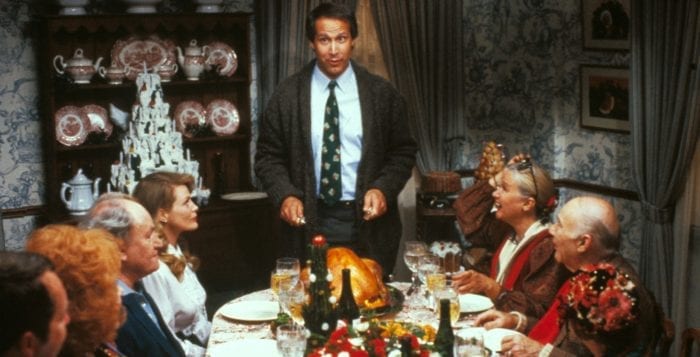D. None of the Above: Trying out our best and worst on family
By Daniel Dunaief

As we marinate in the warmth of the holidays, we have a chance to spend time with friends and family.
We’ve chosen most of our friends ourselves. OK, maybe that’s not exactly true, as we inherit friends from our parents when we’re young: “Oh, why don’t you play with Timmy, who is the son of my best friend whom I met when I was your age”; and from our children when we’re older: “Hey, dad, can you hang out with Allisa’s parents while we wander through Great Adventure theme park.”
Despite the somewhat limited pool of people from which to choose our friends, we often pick those people who share similar values, a sense of humor or a tolerance for politicians.
We don’t have the same luxury with our families. We have nutty family members who say and do all kinds of things that make us cringe, that cause us to laugh long after the events are over or who simply make us scratch our heads.
We often think it’s the other family members who are the oddballs but, in truth, we’re all pretty strange.
Long before people voted each other off shows or islands in situations that seemed completely contrived in reality TV shows, family members confronted the awkward moments when they saw each other, year after year, at holidays, birthdays, special occasions and, perhaps, uncomfortable or less-than-ideal moments.
Families provide us with opportunities to test ourselves and our theories without worrying about losing a job, losing a friend or losing our minds. We can challenge ourselves and our families with ideas percolating in our heads, but that may not be exactly what we believe.
Our families receive the best and the worst of our impulses, as we step forward to help each other, but also encourage independent growth and development.
As older members of families, we hope to lead not only by our words but by our examples. Failing that, however, we hope that our spouses, children, parents and siblings can see us for the range of our contributions to the family, and not just for that ignominious moment that we’d just as soon forget.
Families offer reality checks on the myths we create for ourselves. “No, Dan, you didn’t win that horseback-riding ribbon because you had such a great ride. You fell off the horse and the judges felt sorry for you when you landed in horse manure. Good try, though.”
These moments when families hold up mirrors to us can help ground us, keeping us from becoming too proud or mighty. On the other side, however, when we’re feeling down, families can serve as the perfect counterweight, suggesting that we have succeeded in more difficult circumstances and that they are certain of a positive outcome, even if we harbor significant doubts.
Movies about families often run the gamut of emotions, from slapstick, to comical, to serious and even bruising, as rivalries that run amok can become the origin of dysfunction even when we step away from these familial contacts.
Certainly, therapists often start and end with the family dynamic, drawing an understanding of habits we may not know we have until we look back at the lives and roles that brought us to this point.
At their best, families can inspire and encourage, while suggesting that we can and should believe in ourselves while we pursue our goals. Ultimately, families who demonstrate unconditional love and support, even if they do laugh at us periodically, set the kind of example that makes the accomplishments of the next generation possible. Here’s to everything we give, get and laugh about from the people we call family.







